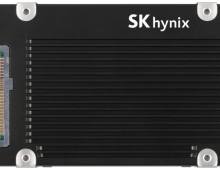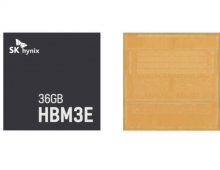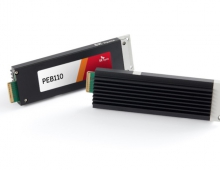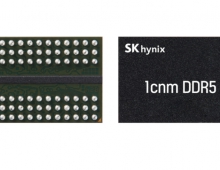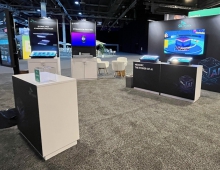
Elpida Begins Sample Shipments of 32-Gigabyte LRDIMM, DRAM Industry's Highest Density DIMM
Elpida Memory has begun sample shipments of its new 32-gigabyte
Load Reduced Dual In-Line Memory Module (LRDIMM), the DRAM
industry's highest density memory module.
The LRDIMM consists of 72 advanced 40nm process 4-gigabit DDR3
SDRAMs in a Double Density Package (DDP).
LRDIMM is a new standard for server memory modules that reduces I/O bus capacity by buffering the I/O bus line with the memory buffer (MB) to simultaneously enable higher system density and faster speed.
JEDEC, a standardization body for the semiconductor industry, is studying the adoption of LRDIMM standards. Elpida is actively engaged in promoting its own standard.
Conventional Registered DIMM (RDIMM) in a two-way server system only allows a maximum of 16 DIMM whereas LRDIMM allows up to 24 DIMM in the same system. According to Elpida, the use of 24 of its 32-gigabyte LRDIMM represents a next-generation 768-gigabyte capacity platform, or 1.5 times that of a system equipped with RDIMM.
Also, with a maximum a speed of 1600Mbps, which is 20% faster than the highest RDIMM speed of 1333Mbps, Elpida's LRDIMM is capable of meeting demand for higher densities and faster speeds in next-generation servers and data centers.
LRDIMM features:
* At 32-gigabyte the industry's highest density memory module
* A maximum operating speed of 1600Mbps (also supports 1333Mbps)
* 1.35V/1.5V supply voltage
* Compliant with JEDEC memory buffer (MB) and Raw Card K standards
* Symmetric memory buffers maintain signal integrity
* Elpida's original heat spreader to increase cooling and maintain reliable operation in response to the higher memory density
* 40nm process 4-gigabit DDR3 SDRAM (DDP) installed
Elpida has already begun sample shipments of the new LRDIMM. Mass production is expected to begin in the first quarter of CY 2011.
LRDIMM is a new standard for server memory modules that reduces I/O bus capacity by buffering the I/O bus line with the memory buffer (MB) to simultaneously enable higher system density and faster speed.
JEDEC, a standardization body for the semiconductor industry, is studying the adoption of LRDIMM standards. Elpida is actively engaged in promoting its own standard.
Conventional Registered DIMM (RDIMM) in a two-way server system only allows a maximum of 16 DIMM whereas LRDIMM allows up to 24 DIMM in the same system. According to Elpida, the use of 24 of its 32-gigabyte LRDIMM represents a next-generation 768-gigabyte capacity platform, or 1.5 times that of a system equipped with RDIMM.
Also, with a maximum a speed of 1600Mbps, which is 20% faster than the highest RDIMM speed of 1333Mbps, Elpida's LRDIMM is capable of meeting demand for higher densities and faster speeds in next-generation servers and data centers.
LRDIMM features:
* At 32-gigabyte the industry's highest density memory module
* A maximum operating speed of 1600Mbps (also supports 1333Mbps)
* 1.35V/1.5V supply voltage
* Compliant with JEDEC memory buffer (MB) and Raw Card K standards
* Symmetric memory buffers maintain signal integrity
* Elpida's original heat spreader to increase cooling and maintain reliable operation in response to the higher memory density
* 40nm process 4-gigabit DDR3 SDRAM (DDP) installed
Elpida has already begun sample shipments of the new LRDIMM. Mass production is expected to begin in the first quarter of CY 2011.

